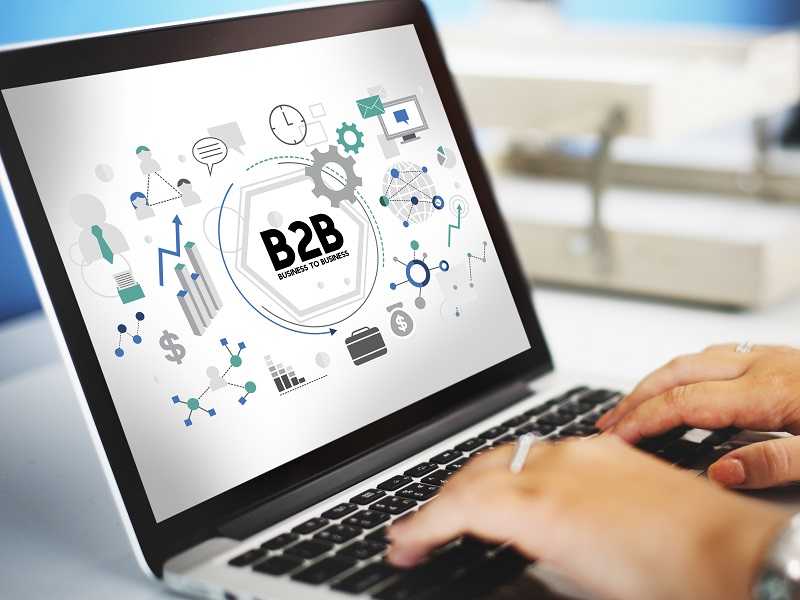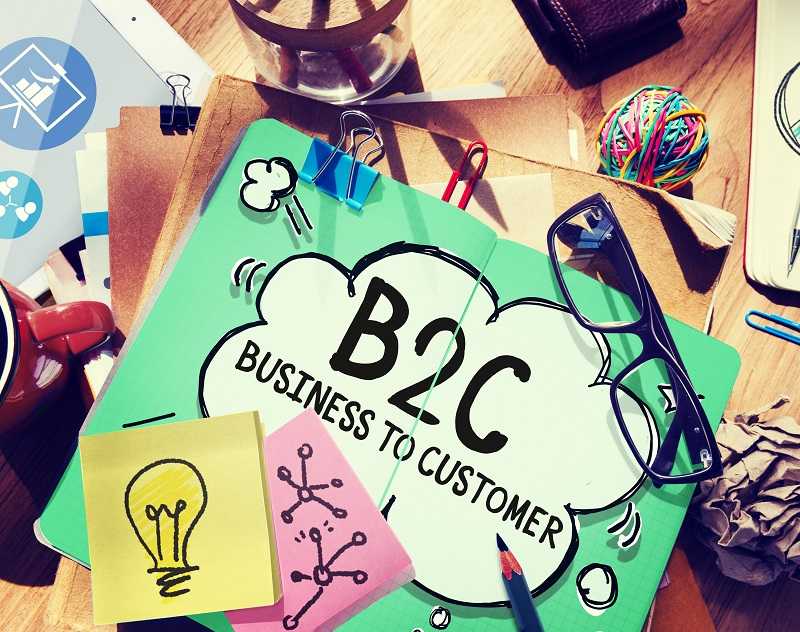B2B And B2C Marketing: Types of B2B Marketing Strategy That You Need To Know

Although B2B and B2C marketers frequently use the same guidelines and practices, there are some important distinctions between these terms.
Business-to-Business (B2B )and Business-to-Consumer (B2C )Marketing?
Having a thorough understanding of each type will help you improve your business, attract new customers, and increase your income.
While there are some superficial similarities, B2C and B2B marketing are not the same, and understanding the differences can help you tailor your campaigns, increase sales, and improve your ROI.
To begin, B2C marketing entails directly promoting services or products to individual consumers, typically for personal enjoyment, consumption, or use. B2B marketing, on the other hand, entails marketing to other businesses directly.

In short, B2B and B2C marketers target completely different audiences.
But this isn't the only significant distinction between the two. A common feature of the B2B model is that businesses always have a separate purchasing process, which saves time and money while increasing efficiency and opportunities for collaboration among many different businesses.
When your customer is a business, you must focus on the logic of the product rather than the emotional element by emphasizing the product's features and functions.
Why is business-to-business marketing important?
Business-to-business marketing is essential because most businesses rely on the products or services of other businesses to function. It is extremely rare for an organization's entire production and distribution process to be completely self-contained.
Your favorite clothing brand, for example, is likely to source raw materials from farms and fabric dies from chemical companies. Your favorite cell phone manufacturer most likely sources the components for their devices from third-party vendors and pays shipping companies to distribute the finished product.
How do these vendor relationships come about?
The process begins with identifying B2B marketing opportunities and then tailoring your brand's message to a company that requires your products/services.
Another important reason for B2B marketing is the length of B2B relationships and the potential for increased revenue.
Typically, selling to consumers entails a single purchase of a low-cost item. When one company sells to another, the cost of the good or service may be substantial and required on a regular basis.
What exactly is B2B marketing?
The techniques and best practices used by companies that sell directly to other businesses are referred to as B2B marketing.
In contrast to B2C marketing strategies, which assume the audience is the buyer, B2B marketing must account for all of the different stakeholders who influence business purchases, whether they are executive decision-makers or simply influencers.
A good B2B marketing strategy employs a variety of tactics to reach multiple audiences at the same time.
They must also account for longer sales cycles as businesses conduct extensive research before making a purchase and involve more stakeholders in the decision-making process.
.jpg)
5 Types of B2B Marketing Strategy
Companies must use several marketing tactics to ensure their marketing message reaches the decision-makers of each company in order to reach a large audience of business-to-business buyers. The following are the most common marketing strategies for B2B customers.
#1: Email Marketing Campaigns
Because many business professionals communicate via email on a regular basis, these campaigns are still recognized as an effective method of reaching B2B audiences.
Emails containing facts about your product and company, as well as details explaining how it can benefit the buyer's company, are an excellent way to increase engagement. If the buyer continues to interact with and read your emails, they may become a lead and, eventually, a customer.
#2: Content Marketing
Many B2C customers are more likely to notice marketing that is entertaining rather than informative. B2B customers, on the other hand, typically seek content that both educates and adds value. This can be accomplished effectively through strong content marketing.
By creating a variety of content pieces such as white papers, eBooks, blog posts, and more, your B2B audience will be able to gain industry and company knowledge in a variety of formats.
High-quality content is increasingly being used to demonstrate expertise. White papers, original research, blogs, and a variety of other forms of writing are produced by businesses for use on their own websites and elsewhere.
It's an important form of collateral in many of the other forms of marketing mentioned on this list, and doing it well is becoming increasingly important as search engines get better at identifying high-quality content that readers want to read.
#3: Social Media Campaigns
Social media is an effective way to reach potential buyers because many of them use these platforms to research various vendors or business partners.
You can run a variety of campaigns on social media, including paid campaigns to reach your target audience as well as organic posts geared toward your prospects.
#4: Paid Search Campaigns
As you create digital marketing content for audiences, you'll want to make sure you're reaching your intended B2B audience. You can accomplish this by launching paid search campaigns. These are advertisements that may appear on the computer screens of your prospects.
You can pay for these ads to target any buyers who may find your marketing and advertising material useful, making it simple for your audience to learn about your company and product.
.jpg)
#5: Social media marketing
Social media marketing is becoming increasingly popular, and it attracts a specific type of traffic that is both more likely to encounter you for the first time and more interested in doing so.
Social media is also a great place to gain third-party validation and strengthen and expand the brand.
LinkedIn is the social media platform that must be used for B2B marketing. Others may or may not meet your requirements, depending on your industry, but LinkedIn is a must.
Author Bio
This user has not submitted a user bio yet
Article Comments
No Comments!
At present there are zero comments on this article.
Why not be the first to make a comment?
Similar Articles
Sponsor
Search Articles
Experts Column
Latest Articles
Featured Articles
Most Popular Articles












